|
After a total of five flights, including several tornadoes, one highway fire, a Midwestern hailstorm, and a faint earthquake, I have ventured to and returned from the 2017 Shakespeare Association of America conference in Atlanta, Georgia. I'm somehow simultaneously energized and completely exhausted, so I'm going to go full listicle on this entry. So here are my four big takeaways from SAA 2017 (or rather, one MASSIVE takeaway and three carry-on items): This was definitely one of the more interesting conference travel stories thus far in my career. In the week prior to SAA, one of Atlanta's major highways caught fire and collapsed. A few days before the start of the conference, tornadoes swept through the area. On the day before the conference, "travel day" if you will, the tornadoes returned and, for a time, the Atlanta airport was shut down completely. My own planned simple trip--Rochester to Baltimore to Atlanta--was supposed to be a quick jaunt down, putting me in Georgia at about 4pm. When I arrived in Baltimore, however, I quickly learned that my flight to Atlanta had been canceled. I was told that they could put me on a plane to Detroit, and catch a flight to Atlanta from there, assuming the airport re-opened in the interim. This was a gamble. I'm related to roughly 72% of the Baltimore/DC area. If I were to be stranded at BWI, there would be no shortage of beds and home cooked meals available to me. Detroit? I don't even know anyone out there. But my panel was the next morning, so I took the gamble and got on the plane. When we landed in Detroit, naturally it started hailing with massive flashes of lightning, one of which scared a flight attendant so much that she nearly fell out of her seat (not a great sign, I gather). Regardless, the airport in Atlanta had re-opened and we took off for the last leg of the trip. I arrived in Atlanta at about 10pm none the worse for wear, and the delays were made bearable by the non-stop Twitter posts about Shakenado, complete with choice lines from The Tempest and King Lear. There were MANY folks who were not as fortunate as I, and most of the panels were missing members. It's the kind of thing that, in most situations, would make people turn into pits of negativity, but not here. Everyone was laughing and optimistic. There were jokes that the dissertation prize should be awarded to the best travel story. One of the seminars I audited decided as a group to move their session to Saturday because a participant was en route from Abu Dhabi and they wanted to give that person the best chance of making the seminar. Another seminar I audited had four members participating via video chat. It's not like SAA was filled with negativity or anything last year (my first SAA), but the travel difficulties seemed to bring everyone together and put us all in the mood to embrace the absurd. On a side note, and I'm not entirely certain how this all began, there was a Furry convention in the hotel next to ours. As such, more than once, furries and Shakespeareans were interacting and engaging in jovial conversation. This was most evident on social media, where furries were explaining their culture to curious Shakespeareans while also expressing their appreciation for the SAA hashtag (my sense was that many of the furries had expected "Shakespeareans" to fit an old, stodgy, humorless image, and they seemed tickled that our humor trended more towards the fifth grade level at times). Andy Kesson blogged about it a bit--and had some great responses from the Furry community. SAA is one of the only conferences I know that utilizes the seminar format, and with my second SAA under my belt, I'm loving that format more and more. I attended three seminars this year: Cognition in the Early Modern Period (the one I participated in), Alternatives to the Term Paper, and A Digital Textbook for DH Shakespeare. I had initially planned to go to the seminar on John Marston--both because of my scholarly interest in Marston's Antonio plays and to say hello to Jason Gleckman, a scholar I met at my very first conference several years ago. Unfortunately, the Marston seminar was missing several people (including Jason Gleckman), and they decided to push it back to a later time slot. While I was trying to figure out which seminar to attend instead, I ended up in a short but productive conversation with James Bednarz, who suggested that I look at a recent book by John Kerrigan (Shakespeare's Binding Language) as I continue to revise my paper on Love's Labour's Lost. Being that this is only my second SAA, I don't have a huge frame of reference, but there seemed to be an enthusiastic interest in the pedagogical side of our field this year, which I found both refreshing and engaging. Two of the seminars that I audited were pedagogical in nature. After the official postponement of the Marston seminar, I found my way to the Alternatives to the Term Paper session. Participants in the seminar shared the various ways they were engaging students, including via performance, creative projects, editorial activities, and more. Some of the participants brought along examples of student work, and the seminar organizers invited the auditors to participate in the discussion and breakout sessions. Dana Aspinall, one of the official participants in the seminar, made several key points regarding the importance of thinking about what it is a term paper accomplishes and how to make sure that any substitute is of equal pedagogical merit/impact. The pedagogical theme continued into Friday, as I audited the workshop session whose participants were collaboratively constructing a web-based research and information tool for classroom use. It was an exciting session to attend, as the participants and organizers clearly began their project without a clearly pre-defined end product. Their work, both individually and collectively, was still taking shape and had the air of exploration about it. Whatever their work ultimately becomes, their early results were fascinating, and again it showed an interest on the part of SAA to take the lead on not just scholarly pursuits but pedagogical ones as well. One of the most brilliant and most terrifying things about SAA is the presence of an absurd number of people. From what I gather, SAA was expecting something in the neighborhood of 800+ people at this year's conference, and looking through the program, some of those people, speaking as a graduate student, can be terrifying. The big names are all at SAA. After citing these people for years, the idea of running into one at the hotel bar brings all the doubts of imposter syndrome rushing back. As a result, grad students tend to move through the venue surveying nametags--ninja style--so as to avoid any awkward situations with major scholars. The "name tag survey" is fraught with many potential perils. Not only is it awkward to scan the room at chest-height, but it's easy to get caught tag scanning and immediately over-think the result. If a scholar saw me scanning their tag and I kept going, is that scholar offended that I wasn't "looking" for them? The worst thing in the world is to say hello to a scholar as if both of us were real people, THEN catch sight of the name tag, and revert to this: Of course, that can't always be helped. I had a few such scenarios like that last year. Some involved one of my committee members (Jon Baldo) ushering me around the reception and introducing me to nametags that absolutely terrified me. Others involved promises. I work as a research assistant for Theodora Jankowski, and last year she instructed me to find Jean Howard and pass along her love. I just looked at Theodora and whined, "I can't just deliver love to Jean Howard! She's JEAN HOWARD!" Naturally, I DID see Jean Howard at the conference last year and did dig up the gumption to pass along Theodora's greeting. Of course that was the point where the woman standing NEXT to Jean Howard said "Oh do tell Theodora I said hello. My name is Phyllis Rackin." And then I died. That said, I am getting better at it. I saw Richard Preiss in passing this year and managed to tell him that I greatly enjoyed his book Clowning and Authorship in Early Modern Theatre. The two big events, the reception and the luncheon, are really the only time where everyone (or most everyone) seems to be in the same room, and if you are even mildly claustrophobic, it is easy to become overwhelmed in such a setting. It also makes the whole "name-tag scan" more difficult, as some have taken off these identifying markers and scanning whilst navigating a room full of hundreds of people (and many glasses of wine) can be disastrous. Last year the reception venue was also occupied in part by a massive bust of the man himself--William Shakespeare (based on the size, I half expected Edward de Vere, Christopher Marlowe, and Francis Bacon to burst out of it with an authorship-themed burlesque number). I did a bit better with the reception this year, after getting a bit overwhelmed by the number of people last year. For the second year in a row, however, I missed the luncheon. Last year, it was due to still being frazzled from the previous evening's reception. This year, it was because I had misplaced my ticket, and by the time I found it, I would have had to enter late (which put images of a Grad Student version of the prom scene in Carrie in my head--my head is a strange place at times). For a conference so massive, I think one of the more interesting takeaways this year is about the smaller connections. Last year, I tended to gravitate more towards people I already knew. People from my program, people from the year-long Folger seminar I did a while back, and people from previous professional experiences. This year, I ended up in three meaningful conversations with people whom I had never met before SAA 2017. Peter Hadorn, one of the other participants in my seminar, was one of these people, and we had a wonderful chat afterwards about his work on the Sonnets. I also had a couple of wonderful conversations with Dana Aspinall. My initial introduction was a little awkward. I wanted to tell him that I greatly enjoyed something that he had written, though for the life of me, I couldn't remember what that was--I just know that I have cited him several times. Dana received the compliment graciously, and indicated that it was probably his work on Taming of the Shrew, as that's what gets cited the most. When I next went up to my hotel room, I searched my computer and found that it was actually something he had written about Robert Armin and Will Kemp, and he seemed delighted when I saw him later and told him I had solved the mystery. This was one of those situations where a graduate student meets a senior scholar and walks away just as impressed with the person as with the work. Shortly before I left for the airport, I had a pre-arranged coffee chat with Kennesaw State's Keith Botelho. I had reached out to Keith on the advice of a former roommate (and Kennesaw graduate) Daniel Singleton. Daniel told me to keep an eye out for Keith last year, and when I didn't see him amidst the sea of Shakespeare, Daniel got more persistent this year, sending his e-mail, offering to make the digital introduction, and so on. Keith and I arranged to meet during Saturday morning's coffee break, and the first part of the conversation was almost eerie. He was prone to saying things that I had heard before, and it was at that point that I realized that I had heard them from Daniel. Clearly this professor had an impact on my former roommate. As the conversation progressed, it got easier and more casual. We joked about how Daniel really needed to propose to his girlfriend already, and the conversation then turned towards work. I am teaching a course this summer on cinematic Shakespeare--a course Keith has also taught. We spent a while discussing the pragmatic details (structure, course text, etc) and then geeked out a bit talking about various versions of Shakespeare that we'd seen. Finally, Keith shifted towards offering some job market advice, particularly about how and when to emphasize my experience teaching high school (I've heard from several sources that this kind of experience can be seen as a bad thing, but that's a topic for a whole other blog post, haha). I'm not sure if it was due to the storm, there being slightly fewer people from last year's SAA, me being a bit more comfortable, or some combination of the above, but these kinds of individual, meaningful conversations just seemed easier to come by this year. I flew out of Atlanta professionally connected to three scholars at three different institutions who I hadn't known at all prior to going there. And those connections felt authentic (ie- not like some kind of forced "networking" game). This all brings me to my fourth major SAA takeaway, and it's the one that, if not for the intercession of a friend over sushi, I might have missed altogether. This plenary, which took place Friday morning (well, morning for me), was not initially on my list of sessions to attend. Friday was going to be a "sleep in and recover from the crazy travel" day, and I had planned to start my day with the luncheon. I had scanned the program, and saw the titles of the talks for this plenary. They didn't jump out at me as the sort of work that I did. I always try to be aware of race, and incorporate the topic into classroom discussion frequently, but for me to get up "early," said my subconscious mind, it had to be a topic that was "in my academic wheelhouse." It had to be the kind of work that I did. And then all of that changed because of sushi. For the second year running (officially a tradition?), Sam Dressel, Sydnee Wagner, and I went out for sushi at SAA. We found a great place and re-connected on Thursday night. As the meal wound down, Sydnee made a point of telling us that she really wanted us to go to the Color of Membership Plenary the next morning. She noted that, in large part, the plenary topic was intended for white scholars, and she was discouraged by how often the audience for race related panels is disproportionately filled with PoC. [UPDATE FOR CLARITY: To be clear, Sydnee loves seeing PoC there as well. Her discouragement at the relative dearth of white scholars seemed to be similar to the sentiment expressed by Dr. Little at the start of his talk. :) ] I told her I would definitely make an effort. The next morning, I officially decided to go. I still didn't think it was a topic that connected to the kind of work I did. But I wanted to go to support and show solidarity for Sydnee. Best. Decision. Ever. The plenary, which was recorded and can be viewed above, featured five speakers (or occasionally surrogates, as some folks were stranded by weather). Dennis Austin Britton opened with his discussion of a piece by Nikki Giovanni and what it means to "count" as a Shakespearean. Arthur L. Little Jr. followed up with the emotional high point of the panel, discussing the ways in which we, as a profession, diminish non-white narrative. Jean Howard offered a piece on being more aware of our scholarly white privilege, and Jyotsna Singh discussed the differences in representation on stage and in academia. Joyce G. MacDonald discussed issues of representation, or the lack thereof, particularly in locales such as her native Kentucky. These short descriptions do not do the plenary justice. Go back up to the video and listen to the speakers (though as an audio recording, you will miss out on Arthur Little's amazing blazer. In a smattering of minutes, that jacket had a bigger Twitter following than I do, haha). Seriously. Go watch it. I'll wait. Here are some of the Twitter real-time reactions to help put you in the moment: Back? Good! I want to bring my focus specifically to the papers from Little and MacDonald. Little discussed issues of visibility and the control of identity. He relayed narrative examples--such as the time he was told by his first Shakespeare professor that that professor "wasn't impressed" with him and the time he was told that there wasn't enough room in the faculty display for a book he had published. He openly wondered whether or how to take such encounters. Essentially, should he take such encounters "personally"? Little's talk opened with a comment that he over-heard from two middle-aged white male scholars who had decided not to go to the plenary because "I'm not very interested in that stuff." I'm not middle-aged, but it felt like he could have been talking about/to me. I am interested in issues of race, but as Little's impassioned talk progressed, I began to wonder why that "interest" didn't translate into something that I do. Why does affect not translate into action?
A LOT of what Little had to say resonated with me. I too value the power of narrative and the personal, both in my scholarship and in my teaching. Part of the reason I DO what I do (license and authority, particularly in early modern schools) is because I was a HS teacher before I became a scholar. And he had a point. Why is my personal interest in teachers and scholarly authority not dismissed as "too personal"? Why are, as he so aptly put it, "scholars of color...encased in the personal" making "personal" an exclusionary term only for PoC and others along the non-cis gendered, non-white male spectrum? MacDonald continued these themes in her talk, discussing the dangers of a lack in representation, which is made particularly dangerous in light of the fact, as Jean Howard noted, that our students are diversifying far faster than their faculties. This was not a plenary to present clear solutions. Rather it was a plenary to attempt to formally define the problems, particularly the problems that many of us don't see and/or don't want to see because they "aren't interested in that stuff" or it's "not what I do." I couldn't stop thinking about that plenary, and a week after the fact, I'm STILL thinking about it. Some thoughts are more whimsical in nature (like wondering if a pasty, heavyset white guy like me could pull off the look that Little was rocking with that jacket) but most have been circulating around potential solutions. How can we make things better? I've thought a lot about publication, and the ways in which that requirement drives the institutionalization of our profession at every level. Have you published? How often? In how prestigious a journal? These questions determine who gets jobs, promotions, influence. And publishing seems to be a locus of the kind of de-personalization that Little was discussing. How do we open up peer-reviewed journals to non-race-coded personal narrative and experience? Connecting to MacDonald's talk, if we could achieve that, would that help to mitigate the dearth of representation while we engage in the important work of diversifying the faculty (ie: would it help for students to see themselves in the articles they research)? Could an increased emphasis on teaching performance and adaptation help? Singh's talk brought in some details on the work taking place on the stage in expanding diversity. I've written about a recent production of the Tempest that was doing just that (with the incomparable Jade Anouka playing the best Ariel I've ever seen and moving away from the stereotype of Caliban as the black/monstrous other). All of these speakers--and indeed several members of SAA throughout the weekend--seemed to be concerned with what "counts" as Shakespeare. Authenticity. The real thing. As the plenary made clear though, we need to be careful to avoid institutionalizing the Bard. This warning against institutionalization, encapsulated so clearly in Nikki Giovanni's whimsical words about hoping that her work would one day terrorize high school students, kept creeping back into my consideration of this plenary and what we can do and need to do to address the issues raised. We need to be clear that the plays written by Shakespeare are distinct from the way the Victorians transformed them into a vehicle for imperial ideology and a representation of the "white man's burden." We need to encourage our students and our colleagues to find themselves in Shakespeare. To think about potential Shakespeares in addition to past ones. To find the love for it that Dr. Little's grandmother instilled in him. To find the ways that we can use it to understand our own society. I once had a student who, in passing, mentioned that he thought someone could do a really good production of 1 and 2 Henry IV set in Baltimore, with Hal and his father living in the white part of the city, and Falstaff and company representing the neighborhoods typically dismissed as slums. My initial thought there was that it sounded interesting, but shifting a history play into contemporary Baltimore might be a stretch. But he kept at it, and the more he did, the more it worked (think the Inner Harbor as stand-in for the Court). I think part of the reason we are uncomfortable talking about race is that many of us feel uncomfortable discussing struggles that we can only understand abstractly. I grew up in farm country. I will never know what it is like to be judged on the color of my skin. But some of my students know that feeling intimately. It's part of who they are and, as Joyce MacDonald so eloquently put it, they can't leave behind something that is embodied. By opening spaces in my classroom for such discussions, it can allow the students to represent themselves--not to educate me (not their job), but to stake an ownership claim in Shakespeare that they are entitled to have. This is the kind of thing I need to do more often and more consciously. I almost missed this plenary because I thought it was going to be about the work that the speakers do (which I thought was different from the kind of work that I do). But it was far more than that. It wasn't about what we do, but about who we are and the ways in which professional barriers are thrown into their faces because their skin does not look like mine. When you are prevented or hindered or blocked from doing what you do because of who you are, that's a problem. And solving that problem is something we ALL need to do. I needed to hear that. A lot of people did. Thanks to the organizers and speakers in the plenary, and thanks to Sydnee for giving me a nudge in the right direction. SAA moves on to Los Angeles next year. I hope to see many people there. Three quick and (in one case) shameless plugs: -Just this morning, one of my secondary teaching colleagues posted a blog from one of his former students that seemed to be engaging with similar notions as the plenary, but at the secondary level. I don't want to get too into that here, but it's worth a read as it is a powerful self-reflection of how we create the negative by focusing on the wrong things. You can read it HERE. -Dr. Little has a book coming out soon that addresses similar issues as the plenary. The title of the book is White People in Shakespeare. Keep an eye out and join the conversation. -I will be organizing/hosting the New York College English Association Conference in October of this year. Our conference theme also touches on some of the ideas mentioned in the plenary. I'd love to see you there (at the University of Rochester). SEE HERE for the Call for Papers.
5 Comments
|
Author
Welcome to the "Blue Collar Scholar" blog at TheRenaivalist.com (i.e. Scott O'Neil's personal and professional blog). Archives
April 2018
Categories
All
|
"Neque enim is verus est habendus orator, qui bene scit dicere, nisi et dicere audeat."
“No one who knows how to speak well can be considered a true orator unless he also dares to speak out.”
Lorenzo Valla, De falso credita et ementita Constantini donatione 1440
“No one who knows how to speak well can be considered a true orator unless he also dares to speak out.”
Lorenzo Valla, De falso credita et ementita Constantini donatione 1440

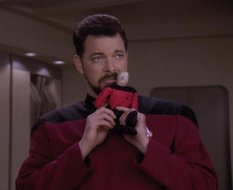

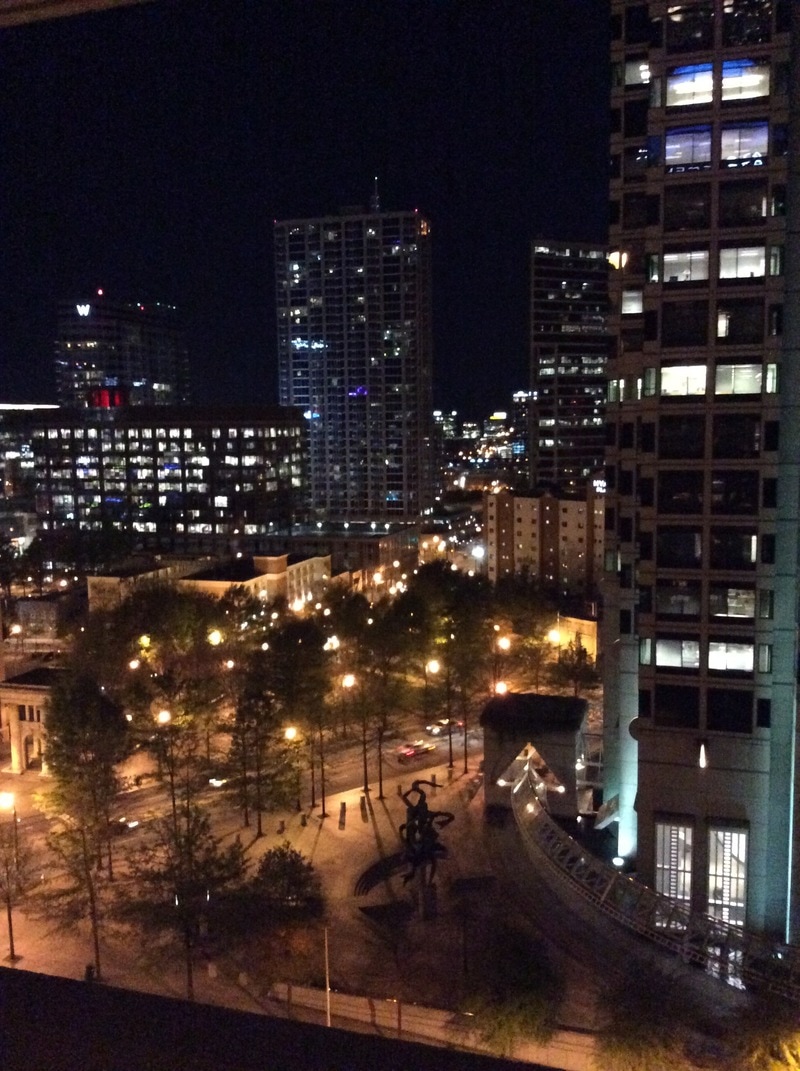


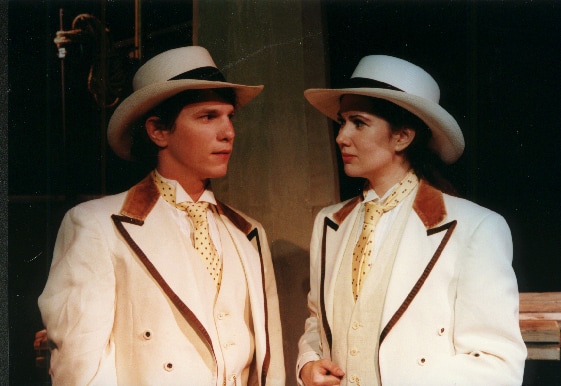

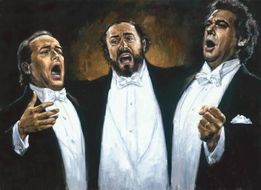
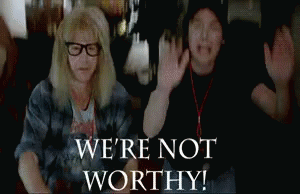
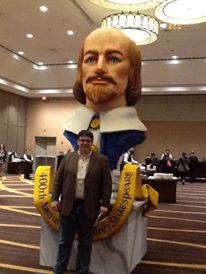






 RSS Feed
RSS Feed